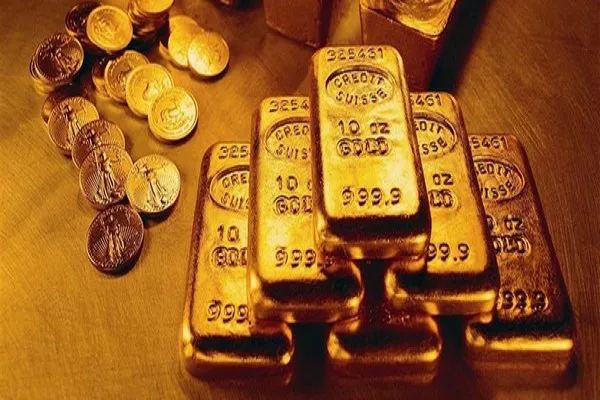Gold coins have long been cherished as a symbol of wealth and a store of value. However, there may come a time when you decide to part with your precious gold coins, either to realize their market value or simply to diversify your investments. Selling your gold coins can be a complex process, but with the right knowledge and preparation, you can maximize your returns while ensuring a smooth transaction. In this comprehensive guide, we will walk you through the steps to sell your gold coins effectively.
Understand Your Gold Coins
Before you start the process of selling your gold coins, it’s crucial to have a clear understanding of what you possess. Begin by identifying the type, weight, purity, and condition of your coins. Common gold coins include American Eagle, Canadian Maple Leaf, South African Krugerrand, and various historical coins. Precise information about your coins will help you determine their market value accurately.
Determine the Current Market Value
The price of gold is subject to market fluctuations. To get the most out of your gold coins, you need to stay informed about the current market value. Check reputable financial news sources or websites to keep track of gold prices. Remember that your gold coins’ value is also influenced by factors like rarity, condition, and demand.
Assess the Condition of Your Gold Coins
The condition of your gold coins is a significant factor in determining their value. Coins that are in pristine condition will fetch higher prices in the market. Look for any signs of wear, scratches, or damage on your coins. If necessary, consider having them professionally graded to provide potential buyers with confidence in their quality.
Research Potential Buyers
Now that you have a good understanding of your gold coins and their market value, it’s time to research potential buyers. There are various options to consider, including:
a. Local Coin Dealers: These are often a good starting point for selling gold coins. Look for reputable dealers in your area who specialize in buying and selling precious metals.
b. Online Dealers and Auctions: Many online platforms, such as eBay, provide a marketplace for selling gold coins. Research the platform and its fees carefully before listing your coins.
c. Bullion Dealers: Some dealers specialize in buying and selling bullion, including gold coins. They may offer competitive prices based on the current market value.
d. Private Collectors: If you have rare or collectible gold coins, consider reaching out to private collectors who may be interested in adding your coins to their collection.
e. Pawnshops: While not typically known for offering the best prices, pawnshops can be a convenient option for quick sales if you’re in need of immediate cash.
Get Multiple Appraisals
To ensure that you are getting a fair price for your gold coins, it’s advisable to obtain multiple appraisals. Different buyers may offer varying valuations based on their own assessments. Collecting multiple offers allows you to compare and negotiate for the best deal.
Negotiate the Sale
Once you have several offers on the table, don’t hesitate to negotiate. You may be able to secure a higher price, especially if you have rare or highly sought-after coins. Be prepared to discuss the price, payment terms, and any other conditions of the sale.
Verify the Buyer’s Credentials
Before finalizing the sale, ensure that the buyer is reputable and trustworthy. Check for the following:
a. Business License: Verify that the buyer has the necessary licenses to operate as a precious metal dealer in your jurisdiction.
b. References: Seek references and reviews from other sellers who have conducted transactions with the buyer.
c. Better Business Bureau (BBB) Rating: If the buyer is a business, check their BBB rating and any complaints filed against them.
d. Payment Method: Determine the payment method and ensure it’s secure. Be cautious of buyers who insist on unorthodox payment methods.
Document the Sale
It’s crucial to keep detailed records of the sale for your financial and legal purposes. This includes:
a. Sales Agreement: Create a clear and comprehensive sales agreement that outlines the terms of the transaction, including the price, payment method, and any warranties.
b. Receipts: Provide or request a receipt for the transaction, which should include details about the coins, the sale price, and the date of the sale.
c. Communication Records: Keep all emails, messages, and other forms of communication with the buyer.
Consider Tax Implications
Depending on your location and the value of your gold coins, there may be tax implications associated with the sale. Consult with a tax professional to understand any potential tax liabilities and reporting requirements.
Secure Payment
Once the terms of the sale are agreed upon and documented, ensure that you receive the payment securely. Avoid accepting personal checks or other forms of payment that may bounce. A bank transfer or certified funds are typically safer options.
Ensure Safe Shipping
If you are selling to an online buyer or a buyer in a different location, take precautions when shipping your gold coins. Use a secure and insured shipping method to protect your investment during transit.
Complete the Sale
Once you have received the payment and the buyer is satisfied with the coins, complete the sale by transferring ownership and delivering the coins as agreed upon in the sales agreement.
Conclusion
Selling your gold coins can be a rewarding experience when done with careful planning and consideration. By understanding the value of your coins, researching potential buyers, and following a systematic approach, you can maximize your returns and ensure a smooth and secure transaction. Remember to document the sale, verify the buyer’s credentials, and seek professional advice when necessary to make the process as seamless as possible. Whether you’re looking to cash in on your investment or diversify your holdings, this guide equips you with the knowledge you need to sell your gold coins with confidence.


